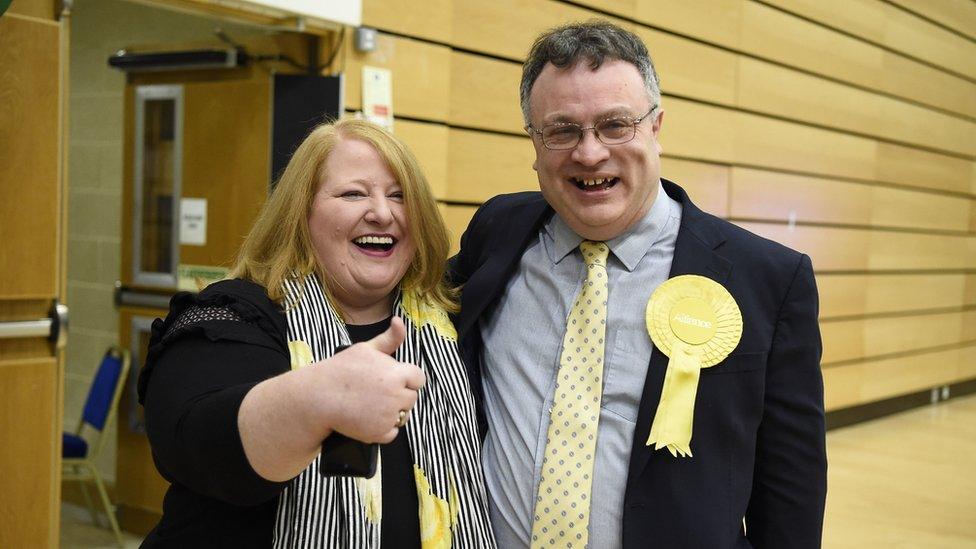Political pacts: Will there be deals at next Westminster election?
- Published
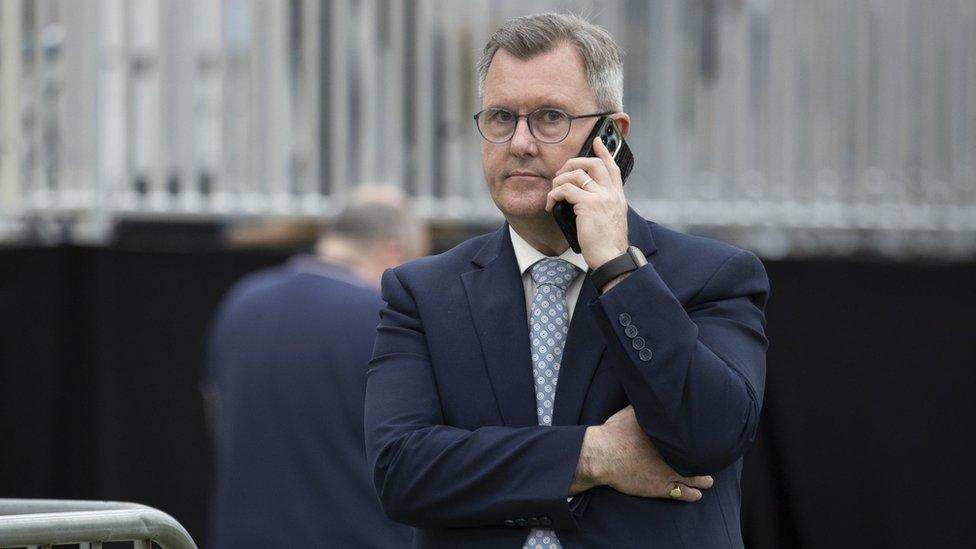
DUP leader Sir Jeffrey Donaldson's constituency is one to watch after his vote share fell in 2019
Although the next Westminster election could be a year away, parties in Northern Ireland are already making preparations.
But instead of battling it out at the polls, could some be working together?
Pacts have long been a feature of Westminster election campaigns in Northern Ireland.
They can involve parties endorsing the same candidate for a constituency - or stepping aside in certain areas to give others a clear run.
Critics regard electoral pacts as tribal and polarising, but proponents see them as a tactical move aimed at getting the result they want.
For many, the campaign in Lagan Valley will be the one to watch.
Democratic Unionist Party (DUP) leader Sir Jeffrey Donaldson has been MP for the constituency for 26 years.
But his vote share fell in 2019, while a surge for the Alliance Party saw their candidate, Sorcha Eastwood, move into second place.
Now, a former Sinn Féin assembly member for Lagan Valley has called for the party and another Irish nationalist party, the Social Democratic and Labour Party (SDLP), to step aside in the constituency for Ms Eastwood.
Paul Butler said there was "no seat there for nationalists" but, by withdrawing, those parties would make it "very doable" for the Alliance Party - which is unaligned on the constitutional question.
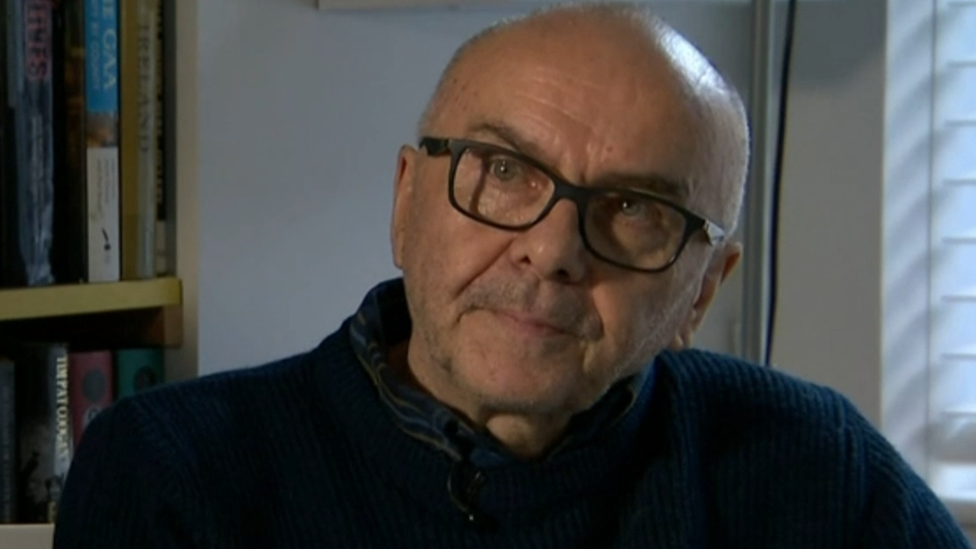
Paul Butler is a former Sinn Fein MLA for Lagan Valley
In Northern Ireland, pacts usually involve unionist versus nationalists.
In the last general election in December 2019, Brexit emerged as another fault line.
But Mr Butler believes that the DUP's ongoing boycott of Stormont's devolved government could become a new driver of tactical voting.
Sir Jeffrey withdrew his party from the power-sharing executive in February 2022, in protest against post-Brexit trade arrangements between Northern Ireland and Great Britain.
The Windsor Framework was struck by the UK government and EU earlier in 2023 in an effort to address concerns with rules under the Northern Ireland Protocol.
But Sir Jeffrey wants further legal assurances from Downing Street of Northern Ireland's place within the UK internal market.
Mr Butler, however, believes the electorate is "weary" of the DUP's protest - and Sir Jeffrey will be "in trouble" at the polls if Stormont's institutions are not restored by then.
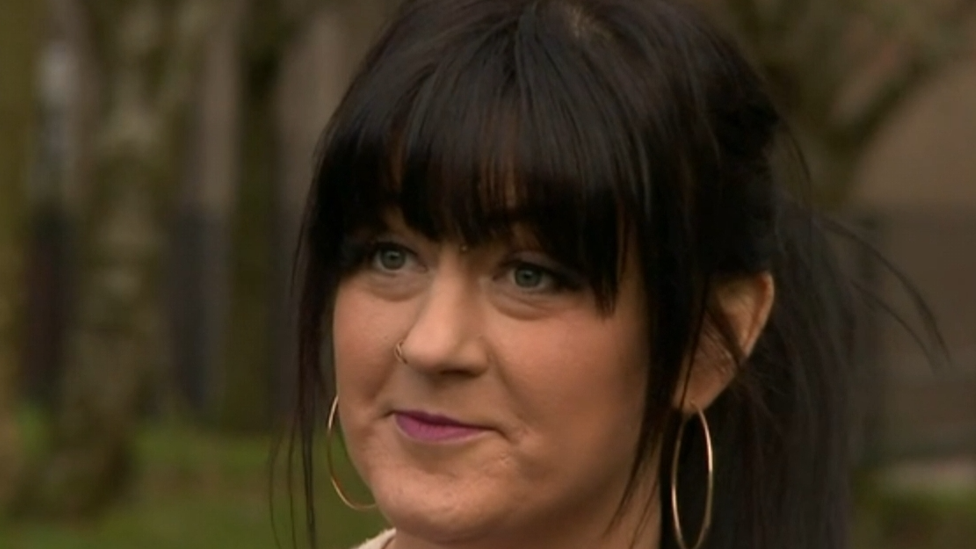
Julie-Anne Corr-Johnston is a former UUP assembly election candidate in North Belfast
The Ulster Unionist Party (UUP) has previously engaged in pacts with the DUP during Westminster elections, in a bid to elect more unionist MPs.
But the party opposes the DUP's boycott of Stormont.
Nonetheless, the UUP will likely face pressure to do a deal in constituencies such as Belfast North, where the DUP lost a seat to Sinn Féin last time around.
Julie-Anne Corr-Johnston, a former UUP assembly election candidate in Belfast North, has said she will quit the party if there is another pact.
However, she argued it would not be a pact if the UUP cannot find the money to run a candidate.
"I think the last election campaign cost £4,500, and it was a huge gamble to have nothing for it at the very end," she said.
"If the party is able to trump up the money, I'm here - let's go."
'A mistake'
In Belfast South, SDLP MP Claire Hanna took the seat from the DUP by a landslide in 2019.
Her campaign was boosted by anti-Brexit manoeuvres, which saw Sinn Féin step aside, while the SDLP gave Sinn Féin a free run in Belfast North.
The Green Party's then-leader, Clare Bailey, also endorsed Ms Hanna.
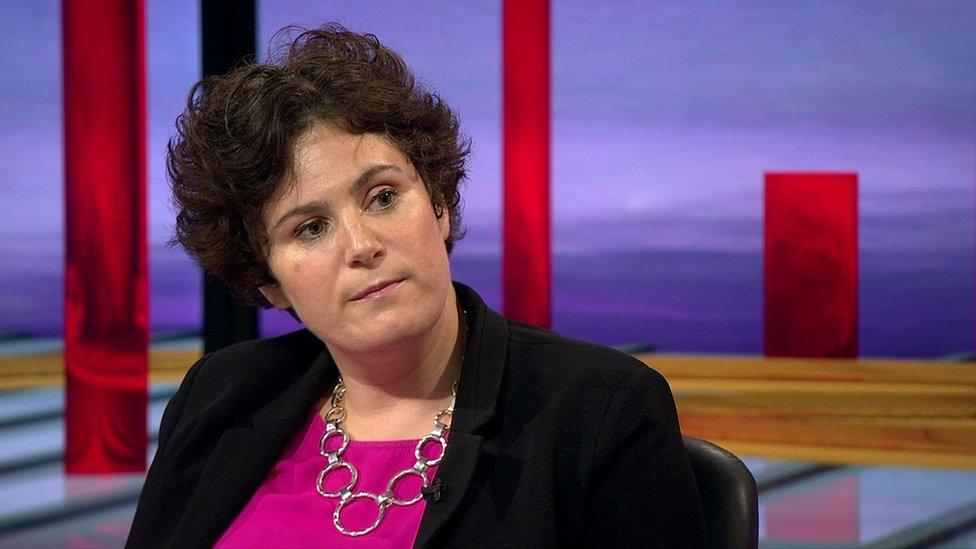
Claire Hanna defeated the DUP's Emma Little-Pengelly in 2019
But since then, the Greens have lost both their assembly seats in the 2022 elections - Ms Bailey's seat in Belfast South and another in North Down.
For former Green Party leader Steven Agnew, the pact was a mistake.
"You step aside, you miss a whole election campaigning for your candidate, getting your name out there, convincing the voters that you're the party of choice," he said.
"You opt out of that and your vote will take a hit."
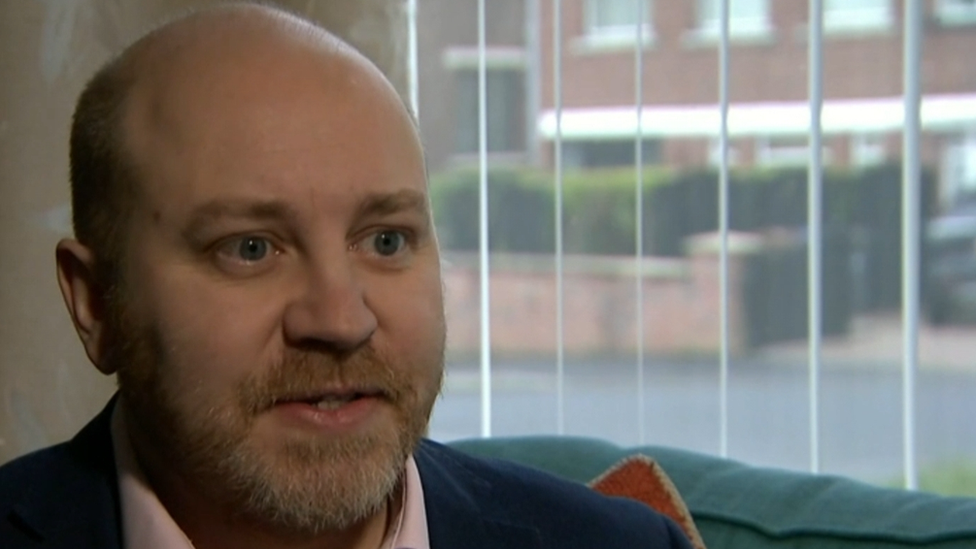
Former Green Party leader, Steven Agnew, believes his old party made a mistake
In North Down, the Alliance Party's deputy leader, Stephen Farry, was the surprise winner in 2019.
Many thought the seat was the DUP's to lose after independent unionist Sylvia Hermon stepped down.
The Alliance Party opposes pacts, but could Mr Farry face a unionist alliance at the polls?
"I'm sure people are having that conversation - pacts always come up around North Down," said Mr Agnew, a former assembly member for the area.
"I think an assumption that a single unionist candidate, for example, will automatically be successful, I think elections disprove that.
"People, when they're denied choice, sometimes stay at home."
An unpredictable contest
Much has happened in the four years since the last Westminster election, and there could be more shifts to come between now and polling day.
Stormont remains in stasis.
But will it be revived before the next general election? And how could that affect the vote?
Throw in constituency boundary changes and a few pacts, and we have the makings of an unpredictable contest.
You can see more about this story on The View on BBC iPlayer.
Related topics
- Published25 September 2021
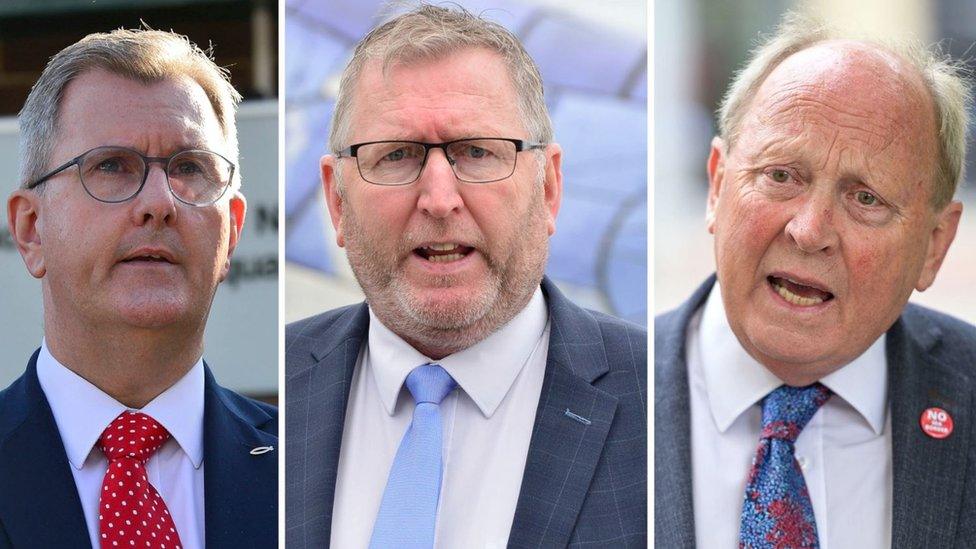
- Published13 December 2019
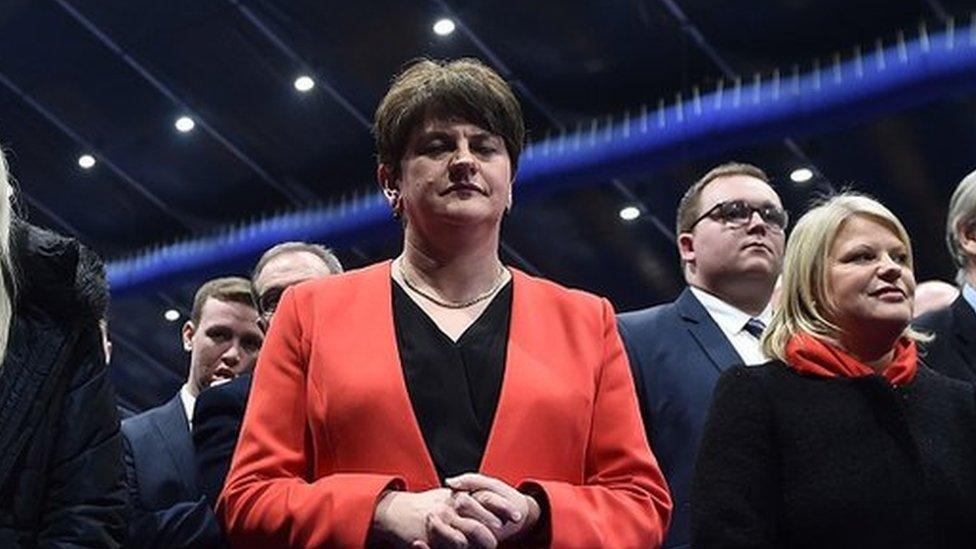
- Published17 October 2023
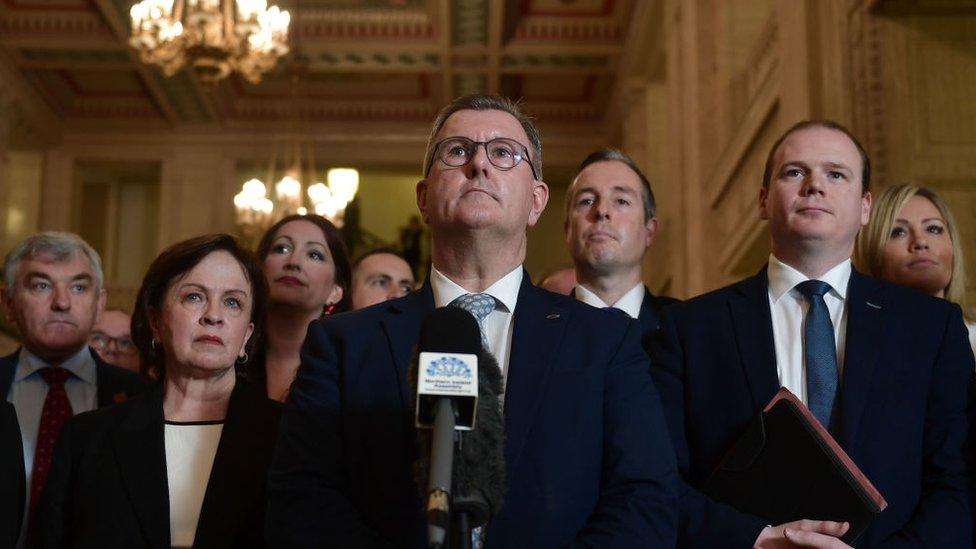
- Published13 December 2019
